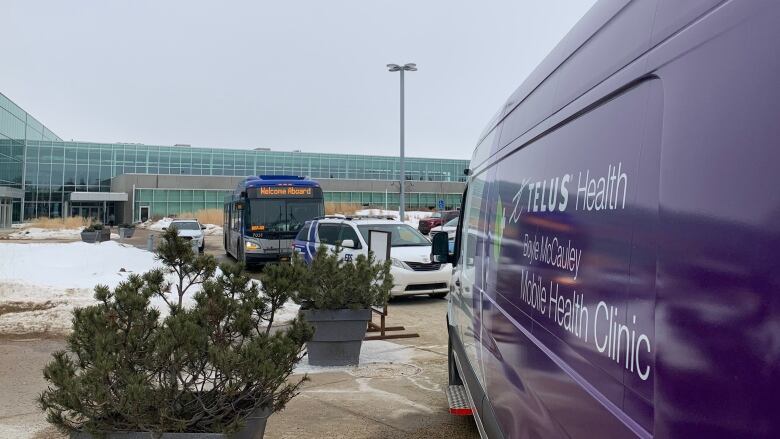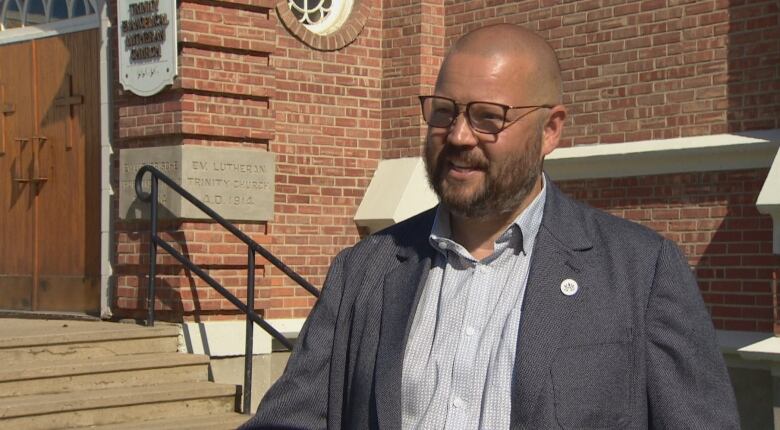Expo Centre exits Edmonton's shelter scene with no back-up plan in place
Drop-in and isolation shelters to close by July 31 with no replacement plan announced

In one week, the temporary shelter at Edmonton's Expo Centre will close, leaving hundreds of homeless people to look elsewhere for food, medical services and a safe place to rest.
As of Friday, the city said it was still working on a plan to replace drop-in day services and the isolation sectionthat have been at the centresince late March.
"Considerations for subsequent waves of COVID-19 as well as for winter conditions are top of mind as these planning efforts continue," the city said in a written statement to CBC News.
"The cost of operating space as large as the Expo has become increasingly prohibitive over time," the statement said.
The city and its agency partners aim to have an update on potential replacement locations next week,Adrienne Hill, city spokesperson for housing and homelessness, said in the statement.
Between 400 and 600 people used the drop-in shelter daily since it opened in March, while dozens with COVID-19 symptoms have beensent to the isolation side.
In June, interim city manager Adam Laughlin announced the Expo would be transitioned from the shelter space back to a convention centre.
At the time he said it was estimated to take six to eight weeks to find new shelter spaces and transition out of the building.
From 180 to 80
The Expo transition comes nearly a month after the Kinsmen Sports Centre was returned from a temporary overnight shelter to a recreation centre.
Dean Kurpjuweit, executive director of Edmonton's Mustard Seed operations, has seen bed capacity go from 180 mats at the Kinsmen to a combined 80 at two locations on the south-side.
Kurpjuweit noted that several agencies, the city and province are working to find a solution but he'd like to know the end plan as soon as possible.

Ideally, he'd like the city and province to announce new shelter spaces by Aug. 1.
"I'm not sure that's going to happen," he said. "Obviously you would just like to be able to transition from one place to another place or places and be ready to go."
Kurpjuweit said the struggle now is to find more spacesthan before to be able toaccommodate physical distancing.
For example, the Mustard Seed Neighbour Centre south of WhyteAvenue would normally fit 60 to 70 clients at a time, butsocial distancing rules bring capacity down to15, he said.
According to thecitythere are about 750 overnight shelter spaces in Edmonton.
Heading into the winter, Kurpjuweit estimates they'll need at least 1,000.
"It won't be good, if at the end of the day, people who need a shelter don't have a place to go," he said. "It puts lives at risk, it puts their life at risk especially when we hit minus 30, minus 40, which unfortunately is six months away."
Coun. Scott McKeen is frustrated about the situation.
"This could go from problem to crisis pretty quickly," McKeen said Friday. "We could have hundreds more refugees on the streets of our cities if we don't deal with this well."
McKeen doesn't blame city managersbut ratheris calling on the province and federal government to create a housing fund.
"The City of Edmonton is running out of money," McKeen said, noting millions in lost revenues in transit and city operations since March.
It's unknown how many property owners will default on their taxes this year, he added.
McKeen and Kurpjuweitrepeat the callfor a larger long-term plan for permanent supportive housing, instead of the reactivesystem currently in place.
At the same time,Kurpjuweitsaid agencies willrespond to the new plan as swiftly as they reactedin March when they set up 180 beds at the Kinsmen centre in a few days.
"We will be ready just as soon as we get word."












_(720p).jpg)


 OFFICIAL HD MUSIC VIDEO.jpg)
.jpg)



























































































